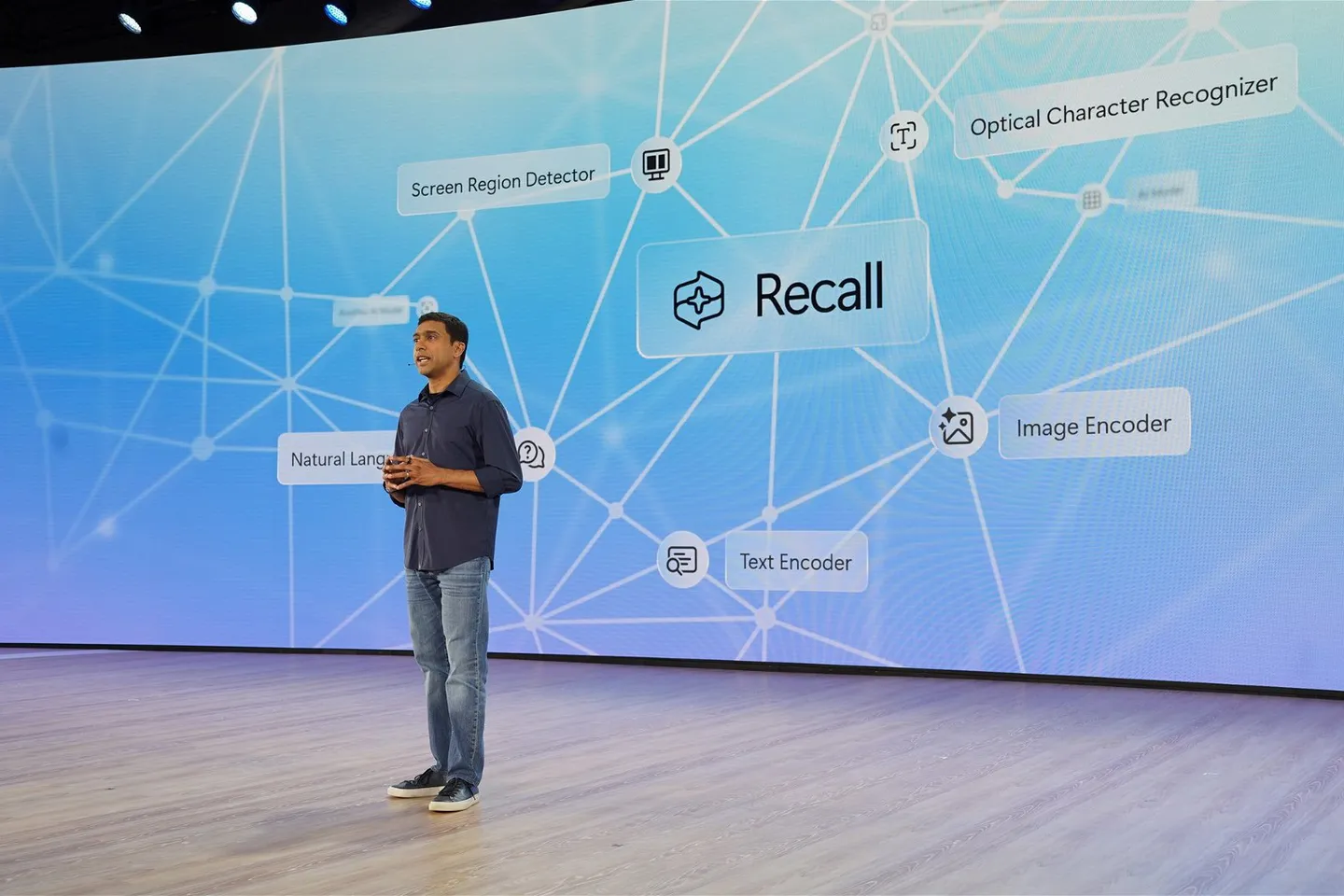On May 20, Microsoft held a significant event in Seattle to unveil its latest advancements in AI and hardware, specifically focusing on Windows 11 and new Surface devices. This event marked a pivotal moment in Microsoft’s strategy to integrate artificial intelligence more deeply into personal computing.
AI Explorer and the Powerful Recall Feature
One of the most anticipated announcements was the introduction of AI Explorer, a new AI-driven feature in Windows 11. AI Explorer is designed to transform how users interact with their computers by making everything on the device searchable through natural language queries. This means users can type commands like “show me the document Bob sent last week” or “find my conversations about the new project,” and AI Explorer will retrieve the relevant information. This feature aims to streamline workflows by allowing users to recall any piece of data or interaction with simple, intuitive commands.
The recall feature is particularly noteworthy as it enables users to effortlessly search for and retrieve past activities, documents, and conversations across different apps and platforms. Whether it’s finding a webpage viewed days ago or a chat about a specific topic, AI Explorer’s recall capability ensures that nothing is ever lost or forgotten.
Context-Aware Assistance
Beyond just retrieving information, AI Explorer offers context-aware assistance. For example, if a user is working on a document, AI Explorer can suggest relevant actions such as comparing documents or editing images directly within the application in use. This is part of Microsoft’s broader “Screen Understanding” capability, which aims to provide contextual suggestions based on what the user is currently viewing on their screen.
New Surface Devices with ARM Architecture
Alongside AI Explorer, Microsoft introduced new Surface devices powered by Qualcomm’s Snapdragon X Elite processors. These new ARM-based Surface Pro 10 and Surface Laptop 6 models promise significant improvements in both performance and efficiency, positioning them as strong competitors against Apple’s M-series chips. The ARM architecture in these devices is particularly optimized for AI tasks, making them ideal platforms for showcasing the new AI capabilities of Windows 11.
Enhanced AI Features
In addition to AI Explorer, Microsoft announced several other AI enhancements for Windows 11. These include advanced Windows Studio Effects for real-time video editing, improved Live Captions for translating audio in real-time, and new generative AI capabilities that can run directly on the device. These features collectively aim to enhance productivity and accessibility, providing users with more powerful tools to manage their digital lives.
A New Era for Windows PCs
Microsoft’s commitment to integrating AI into its hardware and software marks the beginning of a new era for Windows PCs. By leveraging the power of ARM processors and advanced AI features, Microsoft aims to redefine personal computing, making it more intuitive, efficient, and powerful. This strategic move is not just about keeping up with competitors but about setting a new standard in the industry.
For more detailed coverage of Microsoft’s announcements and insights into the new AI features, you can read the full article on The Verge.
Source: The Verge
Link: The Verge




